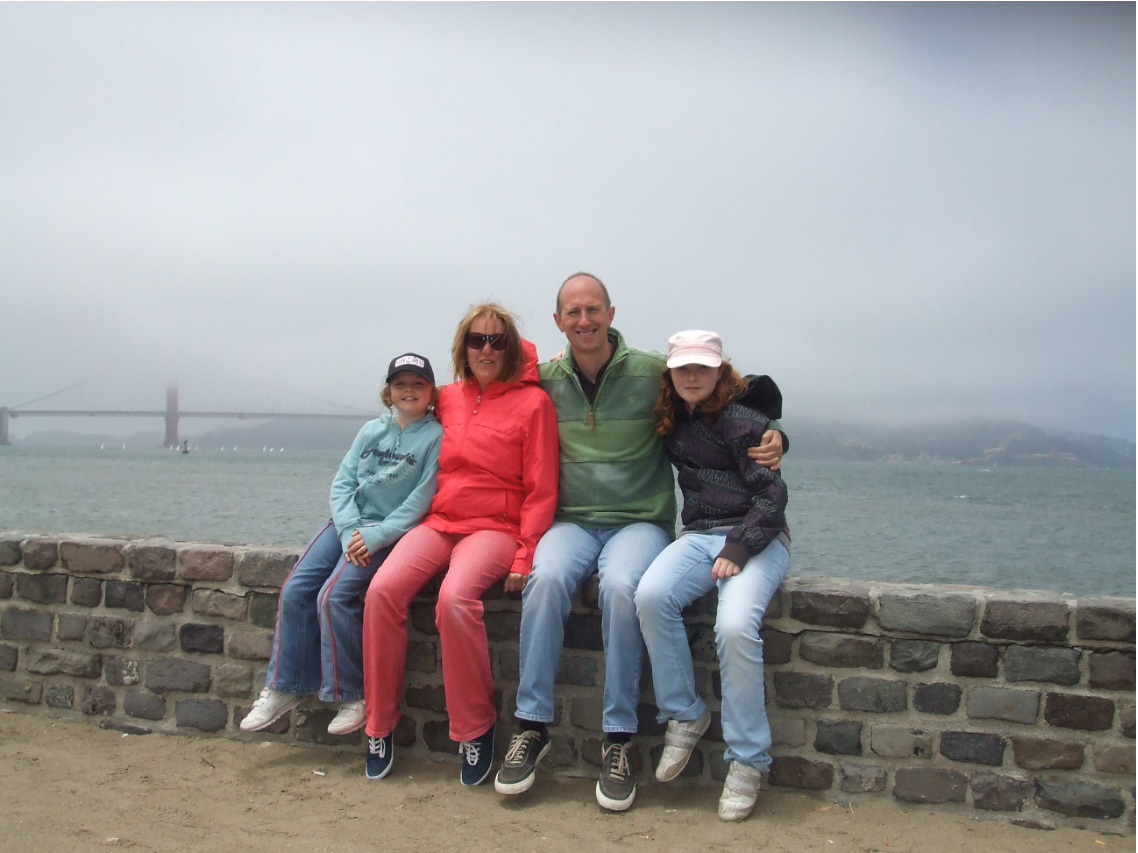Caring for Anna
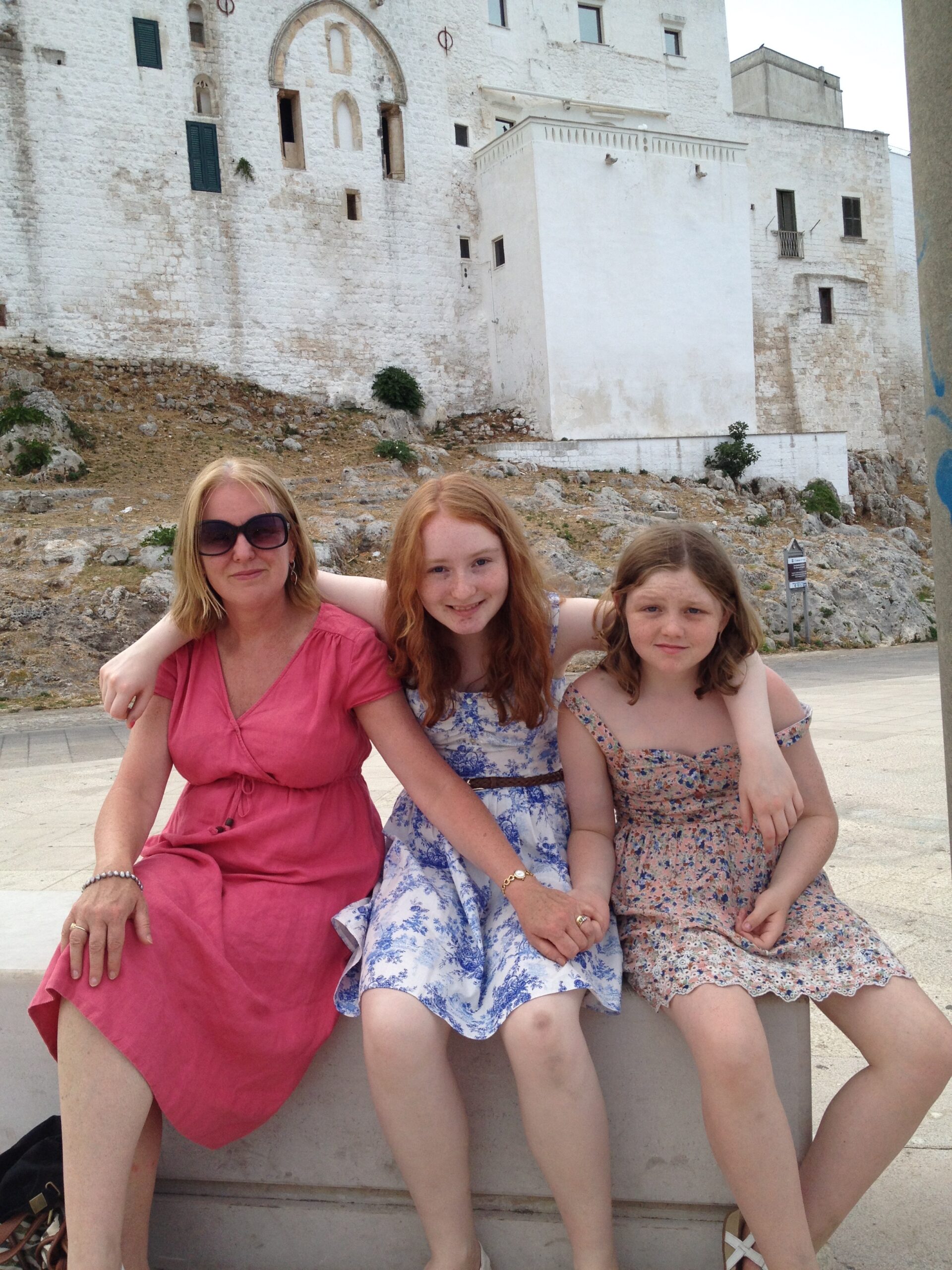
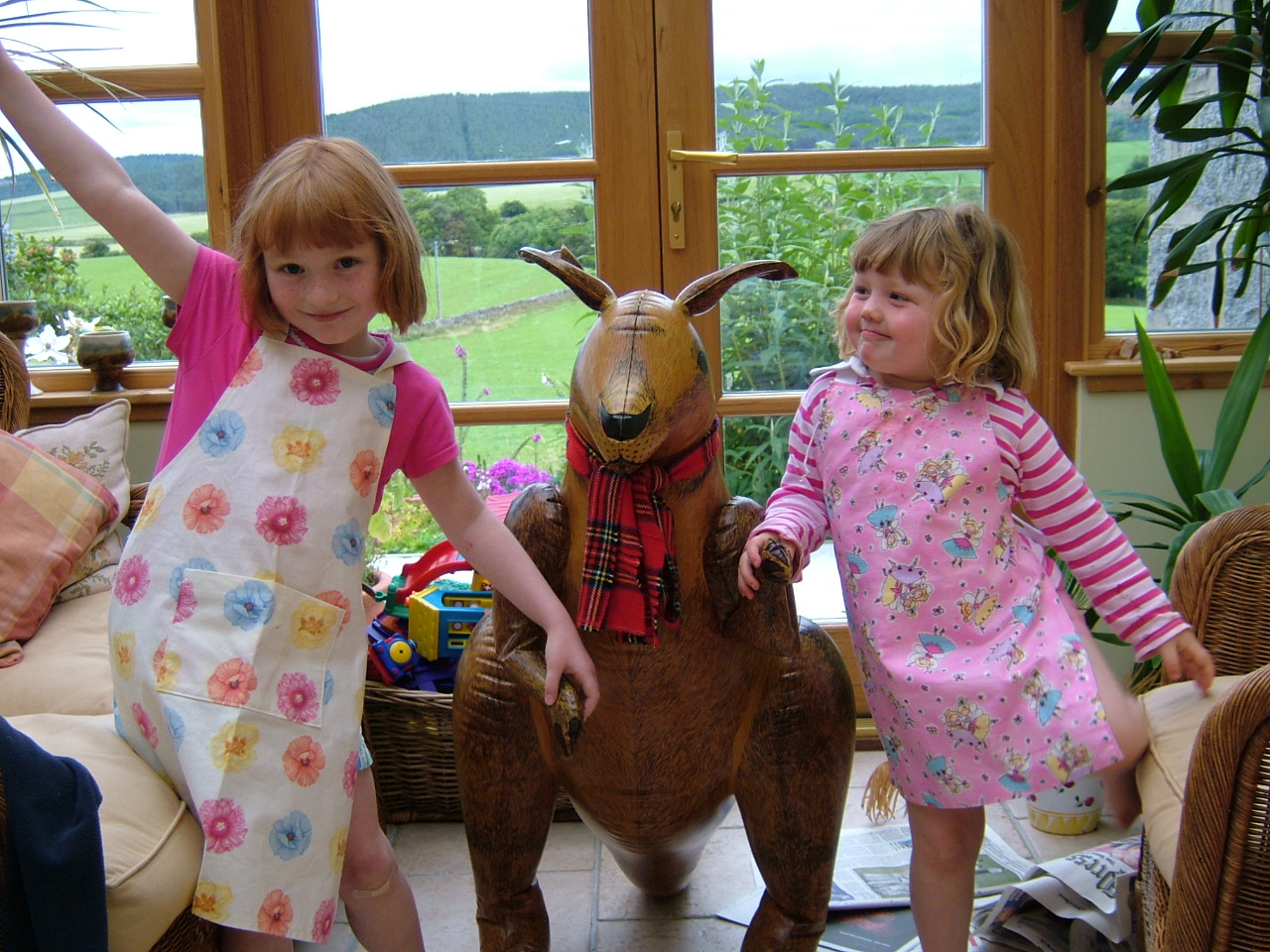
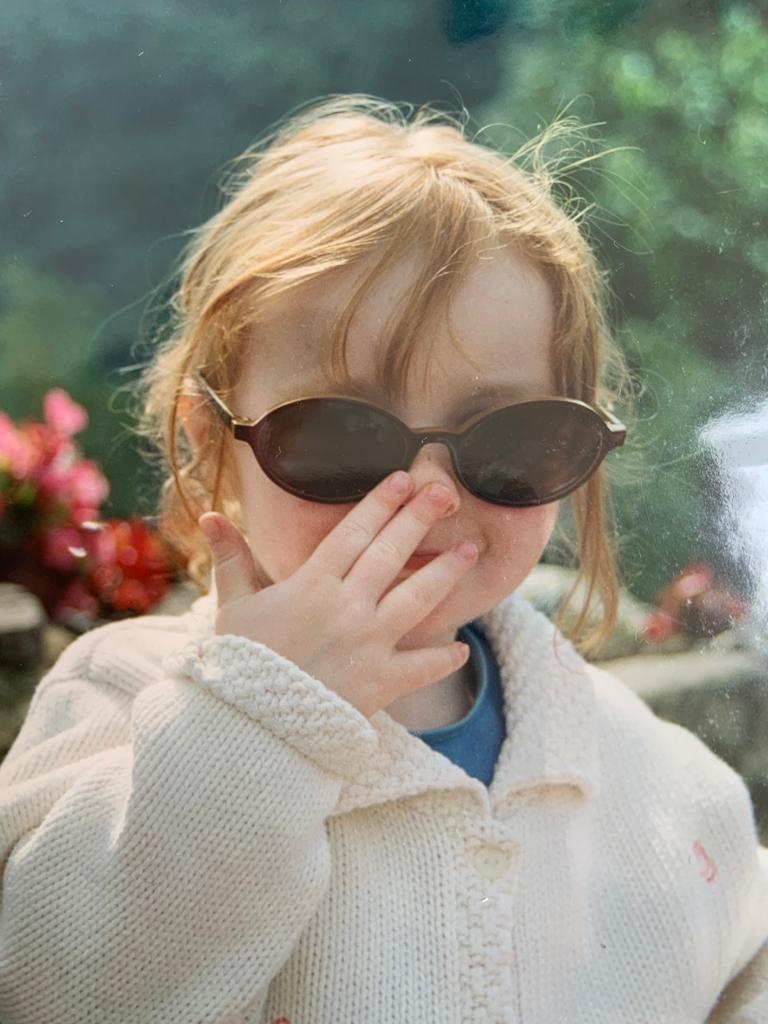
One of the Family Matters films made for this campaign is about our daughter Anna, who is 23 in a couple of months and has Juvenile Huntington’s disease. We have been delighted to take part in this campaign, and although we had to give it a lot of thought, we were led in the end by Anna, who felt she wanted to take part to help raise awareness.
It is important that we talk about Huntington’s, the lack of awareness and general understanding of the condition makes it much harder for families who are affected, and it can feel very isolating at times. For us, we care for Anna full time, and it does take a lot of work and a lot of teamwork too. We have another daughter, so it is important to get the balance right as much as we can in caring for them. Obviously, Anna’s needs mean we can be quite absorbed in daily life looking after her, but we consciously try and keep things as normal as we can, to maintain a normal family life as much as possible, for all our sakes.
It is a privilege to care for her of course, can be very rewarding but at times also incredibly hard and I think it is difficult for people outside the Huntington’s community to understand the mix of symptoms and the implications for daily life.
Anna’s movements are affected, and we are on constant alert to make sure she doesn’t fall or hurt herself. We are also getting to the point where walking any distance can be challenging. One day it will make sense to have a wheelchair as she loves getting out and about. It would make life easier and open up more opportunities, however we can’t rush into that, she clearly isn’t ready to accept a chair yet and we are not going to push her too hard. We feel it’s important to let her have a degree of control over her situation.
Not surprisingly, she also sometimes struggles with black moods, where she can be really quite angry and uncommunicative. These episodes can be extremely hard and upsetting to deal with, as she will stay in her room, refuse to talk, eat or drink properly. We worry terribly about maintaining her food intake and hydration when she is in these episodes as well as keeping her safe. These phases can last for up to three days. However, when she is going through a patch like that, we know it isn’t really her, but the Huntington’s, as she is a wonderful, funny, and kind young lady when she is herself.
Food presents its own problems at other times too. Because of her excessive movements making sure she is getting enough calories is something which is constantly on our mind, but at the same time we are also on high alert for choking, round the clock.
One of the things that is hardest for Anna to cope with is the neurological fatigue that she experiences. I also find this difficult to explain to other people as it is hard to differentiate from normal everyday tiredness in people’s minds. But when Anna experiences fatigue, it isn’t just a case of being ‘worn out’, it actually worsens all her other symptoms, and affects the fundamentals; standing, walking, eating. We know that when she is fatigued she is more in danger of hurting herself by falling over or choking. So, we constantly manage a daily timetable to lessen this symptom.
Caring for Anna is constant and a 24/7 activity. We love her and consider caring for her a privilege of course, but it is relentless. We are lucky that there are two of us, but do feel the pressure if one of us is out of action for any reason. We both left our jobs some time ago, ironically I was a neurological nurse. I do sometimes get a bit fed up when people ask how we are enjoying our retirement! It’s anything but! We are trying to look into respite options at the moment, but it is not straightforward, as Anna’s caring needs are unique. For someone to step into a caring position, there would need to be a high level of understanding of Huntington’s and of course complete trust.
Huntington’s was something we never expected to encounter and of course our life took a direction we didn’t see coming with Anna’s diagnosis in 2019. Anna’s situation has been, and continues to be, utterly devastating. But, we have met some incredible people, and feel that we have been welcomed into this tiny but strong community. I would strongly encourage anyone in our shoes to reach out, you have to ask for help, it’s not possible to do this on your own. Our specialist HD nurse is absolutely wonderful, and the Scottish Huntington’s Association have been marvellous, as have the various other support groups and young people’s groups that Anna is in touch with. We love that this campaign is for all of the UK and Ireland too, how wonderful that the wider community is coming together in this way, to help raise our voices without artificial barriers.
We are so proud of Anna, and hope that people will be able to see her wonderful and unique personality shining through the Huntington’s when they watch her film. And we really hope that everybody who comes across this campaign will help to spread the word, and help to increase awareness just a little bit, so that slowly but surely more and more people will hear about Huntington’s and make life that little bit easier for families coming to terms with it.
In solidarity with everyone else in this lovely supportive Huntington’s family.
Catriona, Anna’s Mum, Aberdeenshire
Carpe Diem
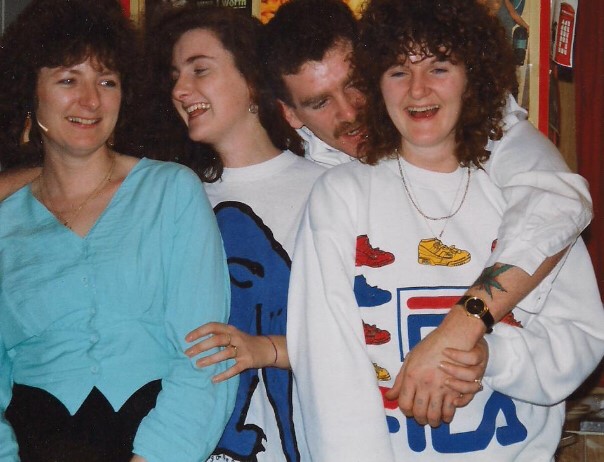
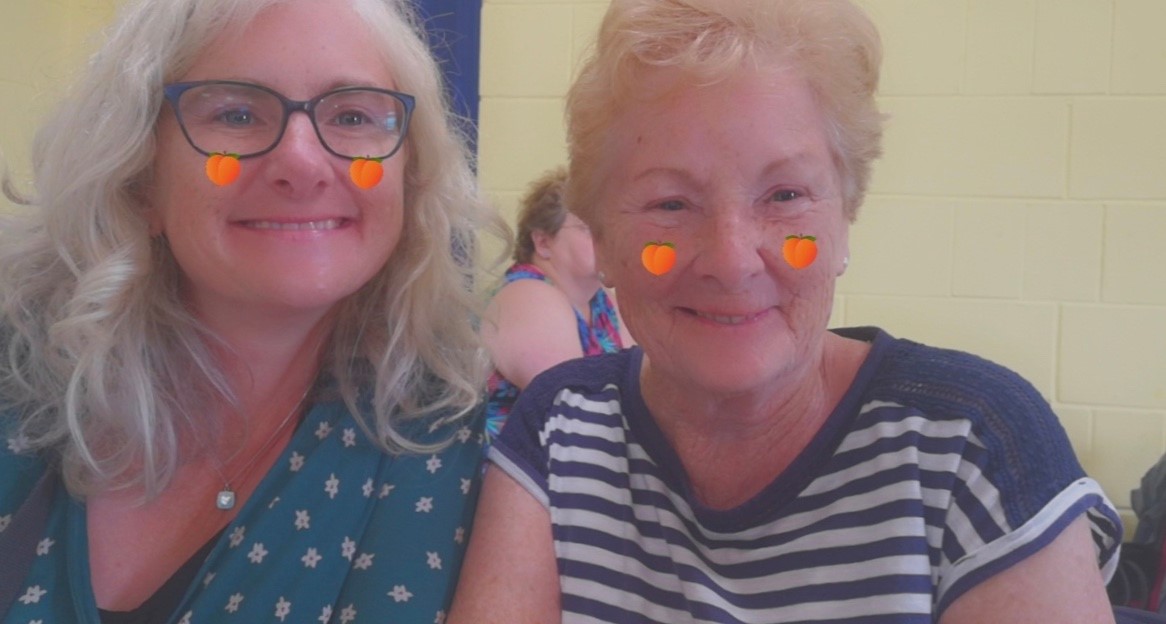
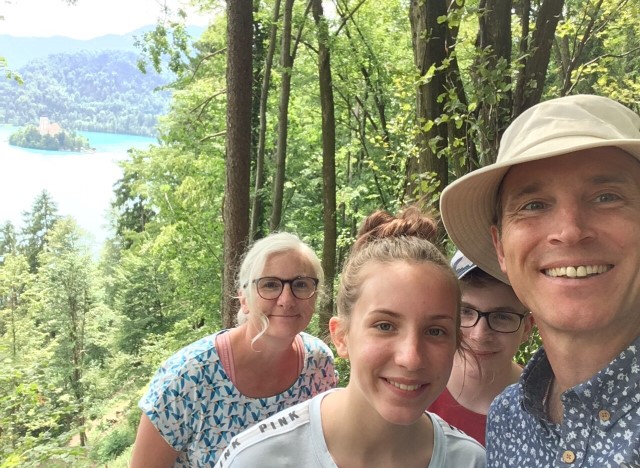
My earliest memory is when we left my Dad when I was four. We knew nothing about the disease that was behind the dramatic changes in his behaviour. He didn’t know anything either, which is heart-breaking to know. Sadly, his family had kept it to themselves and allowed him and Mum to have four children completely unaware of the potential impact on their genetics. Eventually Mum found out from the family that Dad had Huntington’s Disease and told us we might have it too. But she’d been told that only half of children could inherit it – the 50% was something everyone took literally back then. He died when I was sixteen (when he was age 54) and I felt strongly that I needed to know my genetic status straight away. I know everyone approaches this differently – I guess I must have instinctively thought ‘forewarned is forearmed’. I got tested at nineteen when I lived in Edinburgh, but it was many years before I could share the news with my Mum that I had the gene. It meant all four of her kids did – not the statistics we’d pinned our hopes on. Mum remarried and I have been lucky to have a really positive influence in my life from my step-Dad. She is a devoted mother and has spent much of her time looking out for my siblings.
Someone told me that the best thing I could do for my future self was to stay healthy. It really did sink in and thank goodness I started yoga right there and then in my twenties. I did a PhD and met my husband and then went travelling – as much as I could. I wanted to see every corner of the earth and meet people from different walks of life. I worked for the MHRA in London for a while and then came home to Scotland. My Regulatory Affairs work in global clinical trials meant I had clients all over the world, and I still got to travel lots and loved the global perspective it gave me on life. I suspect I was probably trying to squeeze all my life into a few years – just in case I was dead by fifty… which were my expectations. Sadly, though my three siblings all went into full time care around age forty and I have lost my brother (age 50) and one of my sisters (age 57). My other sister (age 56) is in a care home. While we have had many laughs, it has been really tough at times, especially when being heavily involved in decisions about their care. With hindsight, it’s clear that they didn’t make the same healthy lifestyle choices I did and I’m now fifty and still asymptomatic.
I stopped working and was on antidepressants for many years. My wonderfully supportive husband has always encouraged me to try exercise of any form and especially running. Now, I am managing life with therapeutic doses of running and yoga.
We are blessed with two amazing children – they make me so proud every day. My son’s at university now and my daughter is right behind him. They’ve not mentioned getting tested and will be on their own personal journey for that and I hope they know we can talk anytime… I hope every day that they will not have the gene – but it’s not the end of world – it’s something you take time and space to get your head around and make yourself stronger. And I take great comfort in that they will have more choices if they want to have children without the HD gene, and the treatment research that’s going on is very promising.
I met the Duke of Cambridge in 2019 when I got an MBE for services to Scottish Huntington’s Association. A lot of that recognition was, of course, thanks to all the kind people who have raised money and awareness and joined in with all the many efforts I’ve embarked on over the years. The Duke knew of the condition and the great work of the charity - so it felt like a really big awareness moment for our wee HD community. I know it meant a great deal for everyone in that community to be recognised for a fleeting moment and I thanked him on everyone’s behalf for the awareness-raising opportunity it was. In the background I was working on My Zen Run with the SHA fundraising team and we’re now starting to get things ready for our third year of this virtual well-being and running event. If running and yoga can literally be a life-saver for me- then I really feel compelled to spread the word. It’s been wonderful to see the HDAs come together for Family Matters this year and I’m delighted to be part of it.
Marie Short, Falkirk, Scotland
Me, my bucket list, and my blessings
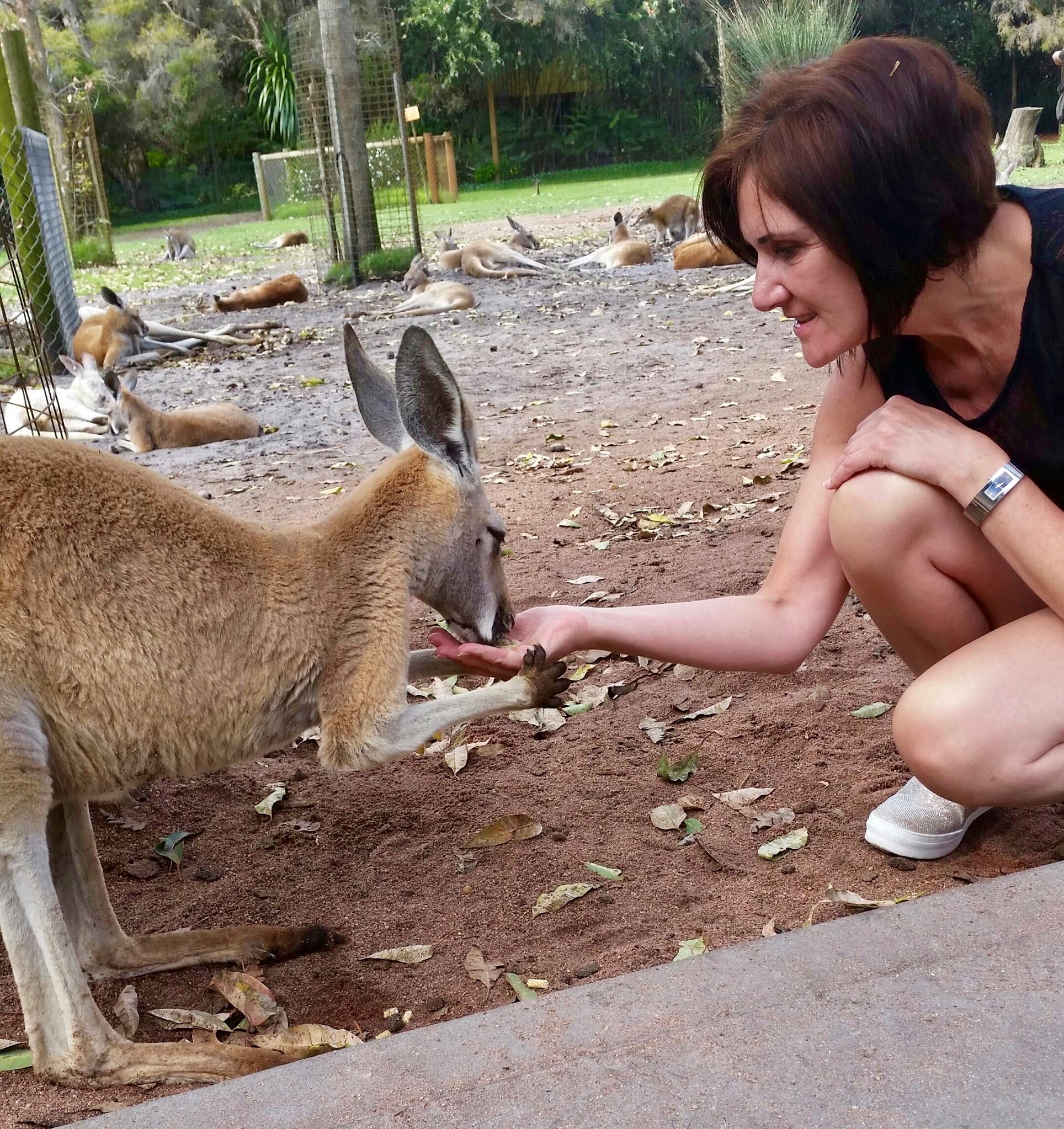
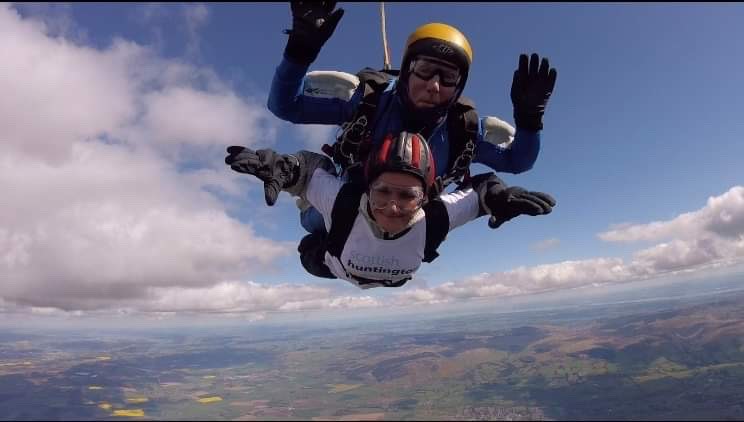
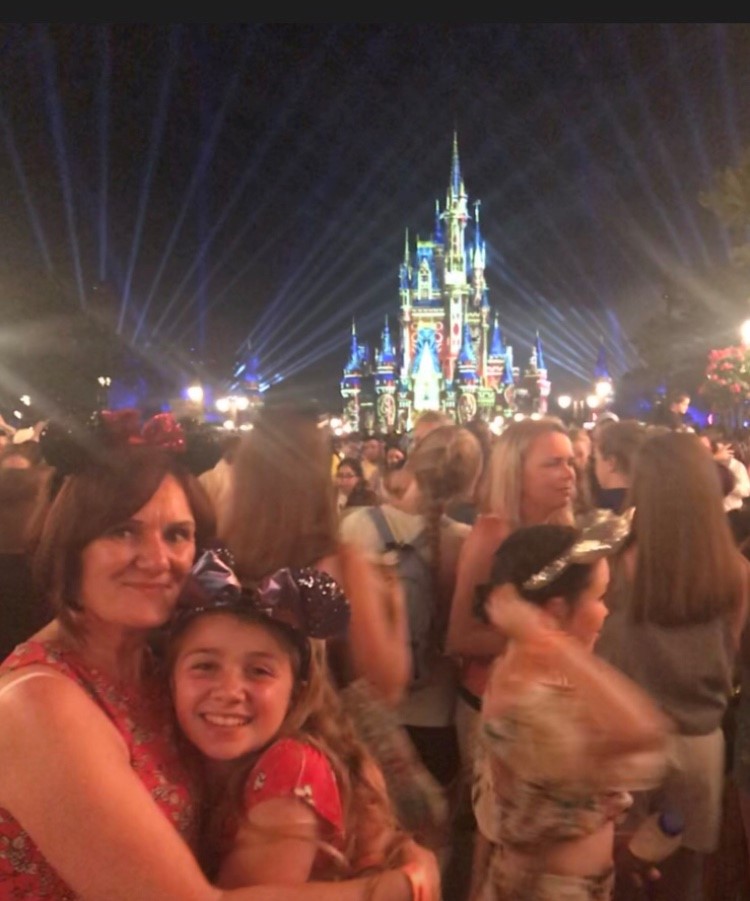
Huntington’s came into my life later on. We had no history of Huntington’s in the family that we were aware of. It came out of nowhere.
My Mum’s Mum had died at 41 from a heart attack before my Mum was even married. My Mum then had a heart attack herself when she was 40, and had a lot of health problems following on from that, mainly related to heart disease. When she began to develop more unusual symptoms, doctors put it down to strokes or complications of her heart operations and that sort of thing. It didn’t seem to occur to anyone at this stage that it could be something else.
Things dragged on and it was several years later, in 1999, that Mum eventually went to see a neurologist. After being tested for basically everything, Huntington’s came up out of the blue.
We got the news a month before I was due to get married and it was a huge bombshell – especially learning that it was hereditary, which meant that my older sister, my older brother, and me, all had a 50% chance of getting it. My brother and sister both made the decision not to be gene-tested, and just kind of got on with their lives.
I however knew straight away that I would probably want to be tested at some point. I needed some time to absorb it all first though, which wasn’t easy with an upcoming wedding and Mum’s declining health.
Immediately after the wedding, our thoughts went to our decision to have children. We had both really wanted to – were we still going to try? At this point I was only ‘at risk’, nothing was certain. There were no pre-natal options available to those at risk back then, so it came down to hard facts and tough decisions. If my Mum had known she was at risk and had chosen not to have me, I wouldn’t be here and lived the wonderful life I had. Also, Mum was late onset, so there was a good chance that if I did have the gene that I would also be late onset. There was lots of time before things got tricky. It seemed to make sense just to go on and at least try and start a family, after all we didn’t even know if we would be able to. We left it in the hands of fate, and I got pregnant within the first couple of months and went on to have three (wonderful) girls.
I tried to put the thought of being tested out of my head but in reality the thought was there all the time throughout my marriage. I started the testing process a couple of times in those early years, but I clearly wasn’t ready, as something always stopped me carrying it through.
Unfortunately, over time, my husband and I grew apart. Despite trying hard, we realised it wasn’t going to work. Somewhere along the road of the counselling I was having during my marriage breakdown, I started thinking about the idea of testing again. So, in the end, I got tested right in the middle of my separation! This time I was determined, and once I’d made my mind up, there was no stopping me.
Getting tested was a real turning point for me. I had struggled at times with low mood and anxiety during my marriage. My Mum had died of heart failure in 2001 two years after her diagnosis and that had hit me hard. Bizarrely enough, despite becoming a single parent and finding out I had Huntington’s all at the same time, I now found myself in the best mental health shape I’d known for years! The uncertainty had been torture, but now I felt a sense of relief, and I felt empowered. I immediately started working on my bucket list.
Although I’m very content with my life, a bit of romance would be the icing on the cake, and I feel like I’m in a great place to find somebody new. I think I would be more comfortable in a relationship now than ever before, I know what I want and what I don’t want, and I reckon that I’d make a fantastic partner! But dating isn’t easy. I’m pretty sure most women in their fifties find online dating a challenge, but when you throw Huntington’s into the mix it’s even harder! It is always on my mind, how quickly should I tell somebody?
Huntington’s is a big part of my life and because I do a lot of work with our charity, I’m pretty ‘visible’ online, so I’ve had to drop the HD bombshell on dates much earlier than I would have liked. Unfortunately, this has led to many men disappearing quickly after, or me being “friend-zoned” before they have really got to know me. It’s not ideal, but I guess it may be a way of quickly weeding out those who can’t handle it!
The thing is I do have reasonable expectations. I now have the experience to have grown past the fairytale fantasy. I’m strong and independent, and all I’m really after is some good company and romance. I think everybody thinks I’m after a live-in life partner, or heaven forbid, a future carer. I do think that people shouldn’t write off those with the Huntington’s gene too soon. Give it a chance – really get to know them – it might just pay off – I personally think I have a lot to offer.
My girls are now 13, 18 and 20. They didn’t know their Gran, so all they have really known of Huntington’s so far is me, and I’m thankfully still asymptomatic. They are absolutely amazing! I’ve always encouraged them not to worry about me, because I’m not worried, and also not to worry about themselves as Huntington’s is a long way into their future, if it is there at all. They are so supportive and positive of everything I do, both when it comes to raising awareness of Huntington’s, fulfilling my dreams and ticking things off my bucket list – which has so far included fire walks, a skydive and my upcoming wing walk with a loop the loop!! Life is so important, so valuable, and I don’t want to waste a single minute, as my time is precious. Huntington’s doesn’t define me, but it has presented some great opportunities. Telling people my story has improved my confidence, and I got to meet the gorgeous actor George Rainsford as part of this campaign – and that was AMAZING!
I can genuinely say that I am happy with my lot. I think anyone who meets me would describe me as a positive, upbeat person, and it is strange but true that that positivity really only came after I knew that this was my life and my destiny. I stopped sweating the small stuff and my old worries and anxieties disappeared. I knew what I was dealing with, got to know myself, and buckled in for a new life, one to enjoy and make the most of. I know not everyone feels that they can manage that outlook, but I hope that for people who are just starting out on their journey, they can see that this can be a beginning as well as an end.
Gillian McNab, Scotland

